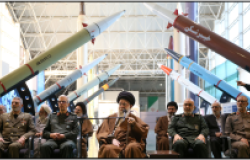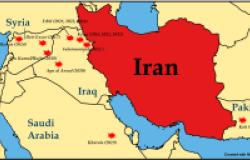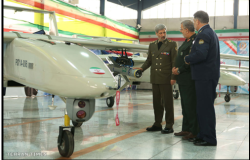"We can't kill our way out”: A bipartisan vision for 21st century American foreign policy
In spite of all the hoopla about bayonets and horses during Monday's presidential debate about America's role in the world, Governor Mitt Romney sounded surprisingly like President Barack Obama on the campaign trail four years ago:
"We can't kill our way out of this mess," Romney said. We're going to have to put in place a very comprehensive and robust strategy to help the world of Islam and other parts of the world ... reject this radical violent extremism."
Yes! At last, we have two presidential candidates who believe that playing whack-a-mole will never suffice.
As Obama said when he ran for his first term, America is a country "whose strength abroad is measured not just by armies, but rather by the power of our ideals, and by our purpose to forge an even more perfect union at home."
Both candidates consistently made that case on Monday. While partisans panned the debate - and neither side appears to have gained much of an election bounce - I saw it as evidence that we're that much closer to articulating a much-needed bipartisan vision for projecting our values around the world.
Both Romney and Obama seemed to understand that while the U.S. should always carry a big stick, we also need to speak in a way that wins the argument with the teenager who is deciding whether or not to strap on a suicide vest. Doing this requires us to explain and abide by what America stands for: rule of law, opportunity for all, gender equality, economic fairness, religious tolerance, and democratic pluralism.
I was in the auditorium at Lynn University - a place dedicated to educating a diverse student body from 87 nations. Worldwide press, 40% of which was international, was covering the debate. And through a partnership between the Commission for Presidential Debates and the National Democratic Institute, foreign delegations were learning how to develop their own candidate debates.
A perfect teachable moment to showcase (more) civility and comity about America's intentions. Though not as warm or humorous as the Al Smith dinner four days earlier, the candidates performed well for a worldwide audience.
The debate highlighted ways in which our country can and should help the rest of the world, including:
– Providing public and private economic assistance
– Trying to resolve seemingly intractable problems by using diplomatic and economic tools (including sanctions), with use of military force as the very last resort
– Working with allies and regional organizations to internationalize the U.S. role
– With those allies, helping countries to build political capacity
– supporting democratic movements against tyranny
I would also add:
– Building schools and designing fact-based curricula to teach boys and girls
– And aid for recovery from natural disasters
Without more effort to articulate our vision, children around the world associate the U.S. with drones and attack helicopters, which they see when they look up. For the few optimists left on this bleak election canvas - I being one –a common agenda of positive actions gives running room to our next president to improve our optic, and he should move on it promptly.
Maybe, just maybe, the effort began this week: a consensus on initiatives to make alienated kids in failing states think twice about hating America and acting to harm us.
This article originally appeared on CNN's Security Clearance.
About the Author

Jane Harman
Jane Harman, Distinguished Fellow and President Emerita, Wilson Center, is an internationally recognized authority on U.S. and global security issues, foreign relations and lawmaking. A native of Los Angeles and a public-school graduate, she went on to become a nine-term member of Congress, serving decades on the major security committees in the House of Representatives. Drawing upon a career that has included service as President Carter’s Secretary of the Cabinet and hundreds of diplomatic missions to foreign countries, Harman holds posts on nearly a dozen governmental and non-governmental advisory boards and commissions.
Read More









